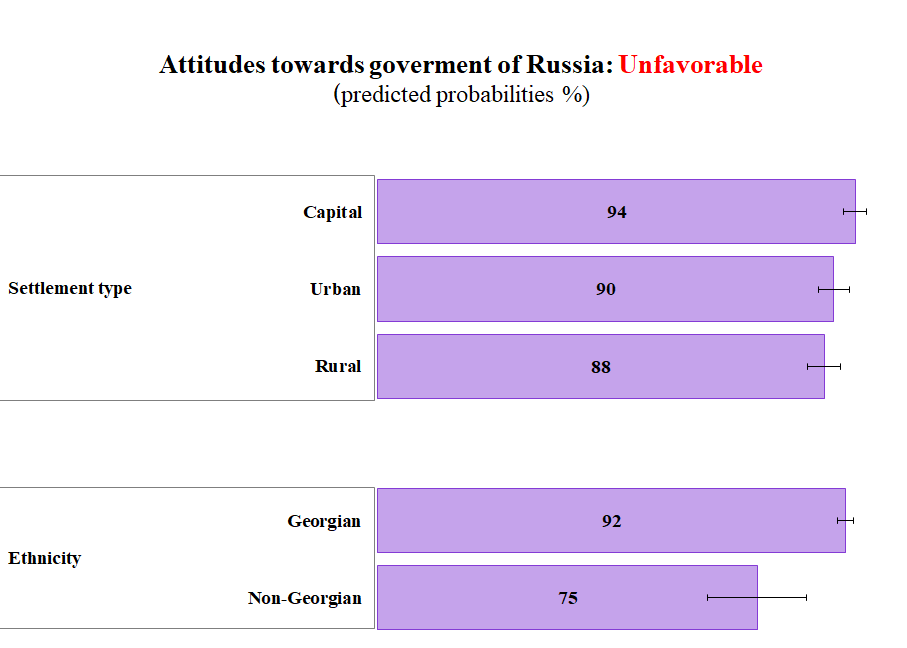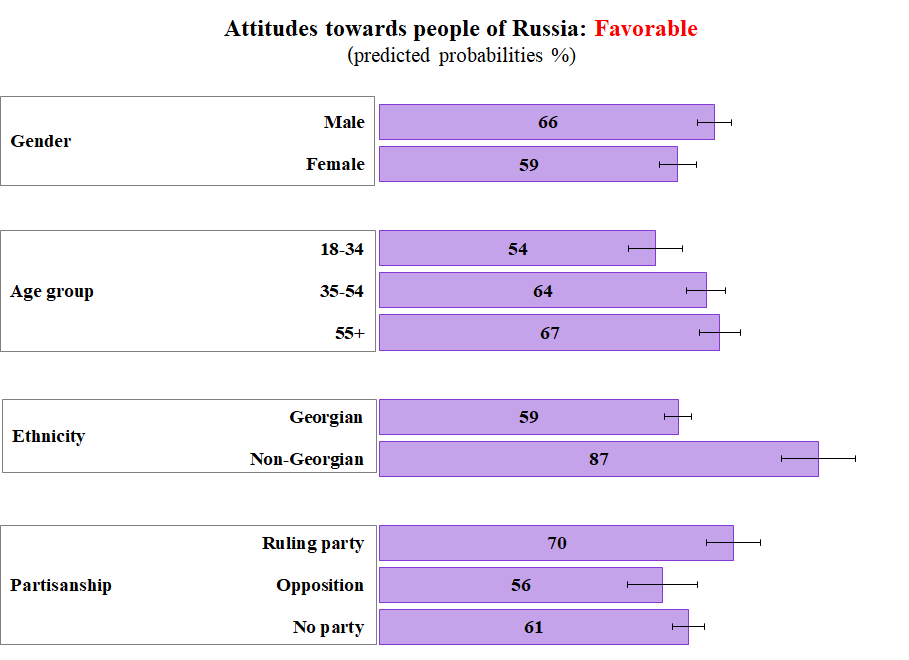
Despite the war in Ukraine and subsequent migration of Russians to Georgia, data suggests that people in Georgia still differentiate between the Russian people and the actions of their government.
After Russia’s invasion of Ukraine, a large-scale migration of Russians to Georgia led to a debate in Georgian society.
Many perceived the rising number of Russians entering Georgia as a security threat, and a majority wanted visa restrictions to be introduced for Russian citizens. Others empathised with Russians fleeing Putin’s Russia.
In this context, there were widespread concerns about anti-Russian sentiment and the potential for hate crime and hate speech against Russians in Georgia.
[Read on OC Media: Russian émigrés face chilly reception in Georgia]
Despite the concerns, data from CRRC and NDI’s polling from March 2022 shows that a majority of Georgians have a positive attitude towards Russian people and a negative attitude towards the Russian state. This maintains a pattern of public opinion that has been present in most surveys which CRRC Georgia has conducted which allow an exploration of the issue, including in multiple waves of the Caucasus Barometer survey and more recently a survey on foreign policy which CRRC conducted for the Georgian Foundation for Strategic and International Studies.
On the March 2022 CRRC and NDI survey, a majority of Georgians (85%) reported an unfavourable attitude towards the Russian government. A majority (59%) also reported a positive attitude towards Russian people.
Further analysis suggests that settlement type and ethnicity are correlated with holding unfavourable attitudes towards the Russian government.
People in Tbilisi were six percentage points more likely to have unfavourable attitudes towards the Russian Government compared to people living in rural areas. Ethnic Georgians were seven percentage points more likely to express unfavourable attitudes towards the Government of Russia than ethnic minorities.

Analysis shows that favourable attitudes towards Russian people also vary across demographic groups.
Men were seven percentage points more likely to express favourable attitudes towards Russians compared to women. People over the age of 35 held more positive attitudes towards Russian people. Ethnic minorities living in Georgia were 28 percentage points more likely to report favourable attitudes than ethnic Georgians. Supporters of the ruling party were 14 and 9 percentage points more likely to hold favourable attitudes towards Russian people compared to opposition supporters and those who do not support any party, respectively.

While there was widespread discussion about whether the Georgian public would become more hostile to Russian people following the war in Ukraine and large-scale Russian migration to Georgia, the data shows that people have maintained a distinction between Russia and Russians, with negative attitudes towards the former and positive attitudes towards the latter.
The views expressed in this blog post reflect the views of the authors alone, and do not necessarily reflect the views of NDI or CRRC Georgia. The data used in this article is available here.








